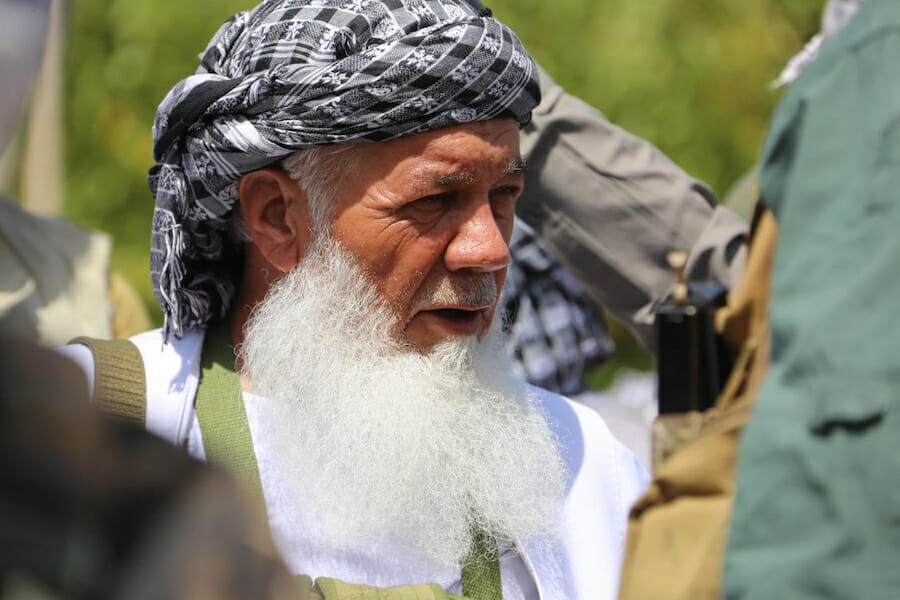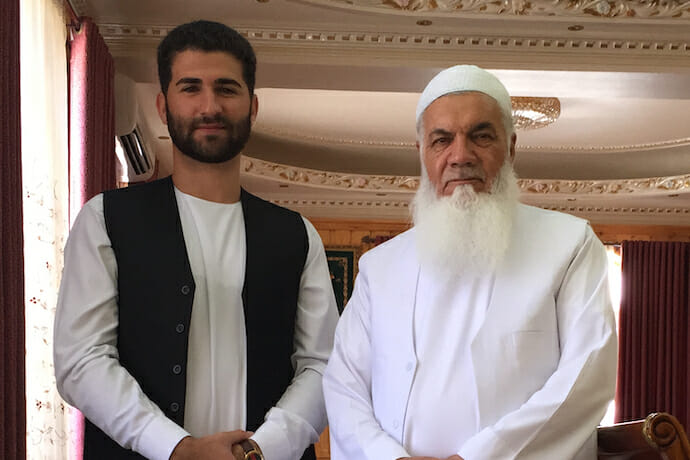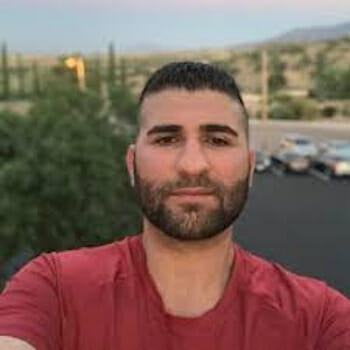
As the Taliban Continue to Make Gains, Afghans Need more Ameer Ismail Khans
The clock struck 11:00 when I arrived at the main entrance to Ameer Ismail Khan’s residence in early August of 2015. A meeting had already been arranged between Ameer Saheb — as Herat citizens affectionately call him —and me. As soon as I arrived at his guest room, he got up and moved towards the door to greet me.
He asked that I give him a few minutes before we could speak privately. The room was full of people from all walks of life. There were a number of his old hamsangars (fellow warriors) from the days when they were fighting against the Soviet Union. Ameer Saheb fondly talked about the memories of those days and how welcoming the local people were to him. He said locals could have betrayed him at anytime and handed him over to the Russians, but they never did. This is because of the sort of person you find in Ameer Saheb — a kind and patient individual with a personality bigger than life. He strikes one as someone who lives for posterity and has rarely paid attention to little people and small stuff.
Some call him a “warlord,” others respect him as an “Amir,” Ismail Khan, a former Mujahid in his 70s, picked up his Klashinkov, ran towards his city’s gate to fight an advancing #Taliban army. It was him & his militias who prevented the fall of #Herat city yesterday. pic.twitter.com/gWURhfUV0A
— Sharif Hassan (@MSharif1990) July 31, 2021
He is a man that has secured his place within the annals of Afghan history. How could he not? He fought against the Soviet Union. He played a central role in defeating them. He then went on to resist the onslaught of the Taliban in 1995. He was then captured and imprisoned in Kandahar for three years before he could escape. Despite all the hardships he experienced, he picked up arms again to free Afghanistan of the Taliban — perhaps the worst creatures on the planet.
Following the defeat of the Taliban by the U.S. military and having played a major role in that effort, he became the governor of Herat. He made Herat the envy of Afghanistan. No other governor has done the kind of infrastructural work that he has in Herat. Herat continues to remain an object of fascination, as it’s an intellectual powerhouse.
This ancient city — which has historically been the citadel of civilization and culture – has come under attack once again. The Taliban — the instrument of power and destruction of foreign governments – have breached the gates of the city and intense fighting is ongoing with the Afghan security forces. Morale among the Afghan forces is low. The central government is corrupt and practically non-existent. Ismail Khan – the man in the arena — to steal a quote from Theodore Roosevelt — has come out to defend the city. He’s likely in his late 70s but carries himself with the strength and vitality of an 18-year-old infantry soldier. This is because he loves his people. He cherishes their values and is determined to deal a deadly blow to the Taliban.

Once again, Ameer Saheb will come out triumphant. His already marred face will be further “marred by dust and sweat and blood,” but he will not let his city be run over by these barbarians. He is fearless. He is brave. He is Herat’s pride and joy.
Shortly after he excused himself from the major meeting on that sunny August day, we moved to another room for a two-hour interview. The head of his security detail wanted to stay in the room due to security concerns. Ameer Saheb dismissed him and said he was fine. The more I talked to him, the humbler I became: I realized he wasn’t an ordinary man. He was extraordinary and is a man that’s protected by a belief system and by a conviction that is beyond the comprehension of us mere mortals.
Citizens of Herat have rallied behind their Ameer Saheb to remove the Taliban from the city and its districts. Herat must continue to remain a beacon of hope — a bastion of culture — an impenetrable fortress — a graveyard of the Taliban and anyone else that wishes it harm. Forward ever, backward never, Herat citizens must faithfully defend their city and its people.

